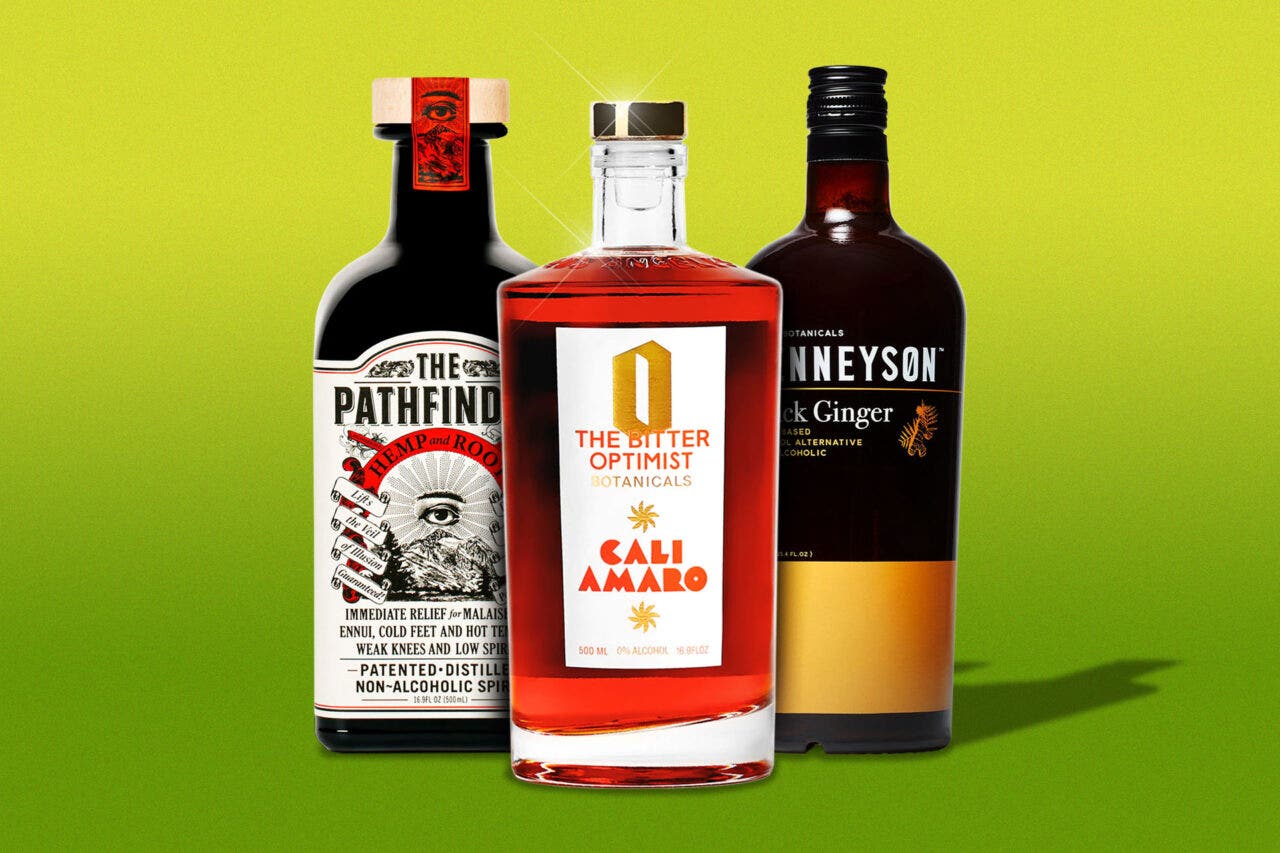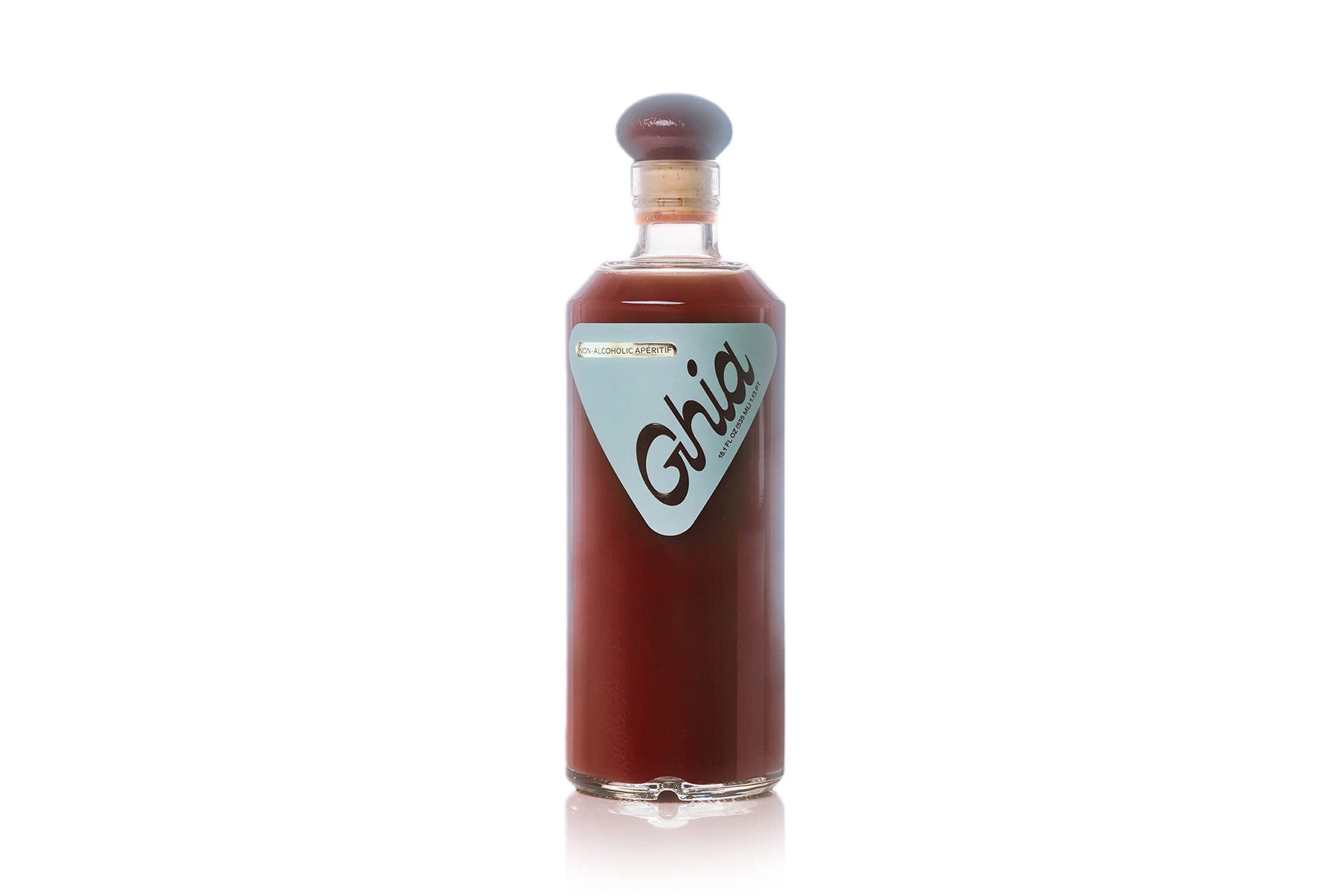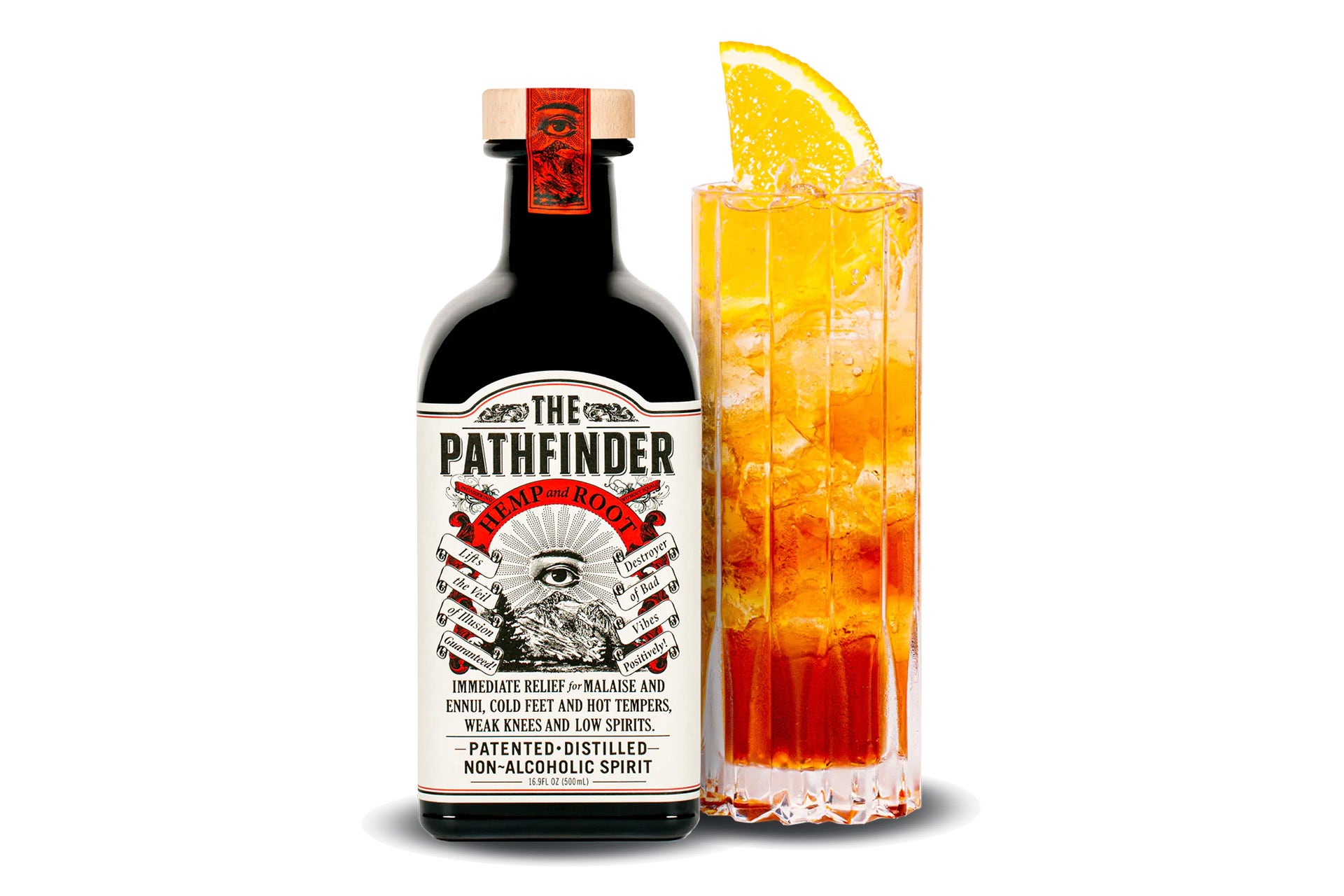Italy’s beloved bitter digestif, amaro, isn’t for everyone. Those who love it, however, crave the bracing bitter punch it delivers. Now, the category is attracting the zero-proof crowd.
Non-alcoholic drinks are having a moment in the sun, from wine and spirits, to beers and cocktails, and amaro is no different. If you’re not drinking alcohol for a night, a season or forever—you’re in luck: There are more and better non-alcoholic amaro options than ever before.
What Is Amari?
The word amari (amaro as singular) literally translates to “bitter” in Italian, but the term applies loosely to all sorts of bittersweet, herbal liqueurs. Amari are traditionally crafted by infusing grape brandies with a mix of flowers, tree bark, citrus peels, herbs and spices. Famous examples include vibrant red Campari, sweet and tangy Aperol, licorice-y Fernet-Branca and artichoke-forward Cynar.
Amaro recipes are often closely guarded and dizzyingly complex. They tend to be sweetened with sugar syrup and aged in barrels or bottles, making for a silky texture and complex depth of flavor.
Amaro first hit the market in Italy in the 1800s. They were originally billed as medicinal aids: All those barks and herbs were said to aid digestion and soothe the stomach. That’s why amari are often consumed as a digestif, aka a drink consumed after dinner. These days, however, amari are just as commonly enjoyed before dinner—in a spritz, Negroni or other pre-meal cocktail—as they are savored after a meal.
What Is Non-Alcoholic Amari?
Simply put, non-alcoholic amari are bitter digestifs that do not contain alcohol. The category faces some challenges in terms of acceptance.
“What is that, root water?” asks Michael Snodgrass, CEO and partner at Las Vegas-based alcohol importer and distributer West Coast Beverages when asked about the trend.
Others, however, are more enthusiastic. David Othenin-Girard, the spirits buyer at K&L Wine Merchants in Hollywood, California, sees the category as exciting and delicious. “You can get so much more unexpected flavor from non-alcohol amari,” he says. “There are even flavors you don’t necessarily get in alcoholic amari.”
Othenin-Girard emphasizes that amari are, by nature, unique. “You can’t even make an alcoholic substitute for Campari,” he explains, as its recipe is a secret. This gives modern non-alcoholic spirit makers plenty of room to experiment and play. Some producers make claims that, true to tradition, the herbs, roots and teas in their non-alcoholic drinks can still make your tummy feel good.
Today, there are more interesting amari options than ever. Hannah Selinger, a James Beard Award-nominated journalist and certified sommelier through the Court of Master Sommeliers, is a particular fan. She started cutting back on alcohol a few years ago, when she began suffering from migraines.
“Ever since, I’ve been thrilled with the emerging options when it comes to NA beverages like amari,” she says.
How to Drink Non-Alcoholic Amari
“If you love cocktails, you can build on these [non-alcoholic amari] with tonics and juices for an equal, if not more enjoyable, experience than an alcoholic cocktail,” says Othenin-Girard.
For example, Negroni Sbagliatos are hot right now. Making one with non-alcoholic amari can be a great way to turn down the ABV without sacrificing flavor. Alternatively, Othenin-Girard loves the woodsy Bitter Optimist Cali Amaro served simply over ice with a splash of grapefruit soda. “I love the bitter on bitter from the liqueur and the grapefruit,” he says.
The big takeaway? “Don’t deprive yourself just because you’re going to take the night off from drinking,” Othenin-Girard urges.
Ready to give these non-alcoholic options a try? Here are five excellent amari—sans booze—drinks pros swear by.
5 Non-Alcoholic Amari to Try
Three Spirit Social Elixir
Othenin-Girard loves the “more complex tincture style botanical extracts” in Three Spirit Social Elixir, a full-bodied, bittersweet drink that gets its unexpected savory bite from lion’s mane mushroom, yerba mate and the wild herb damiana. Despite containing no alcohol, Three Spirit claims its drinks will make you feel… something. It’ll make you “a little floaty and flirty,” says Othenin-Girard, adding that the combination will “lift spirits and reduce inhibitions.” Who says sober can’t be wild?
$39.00 Three SpiritBitter Optimist Cali Amaro
Tenneyson Black Ginger
Tenneyson’s maker Graham Wasilition urges that his spirit is different from traditional amari “because of the sugar content. We purposefully do not add any refined sugar.” Still, the drink’s sweet and bitter profile makes it feel right for this list. It delivers punchy and bright notes of black ginger with a spicy, peppery kick. Other ingredients include dandelion, lemon balm, bergamot, Yerba Matte, grape seed and gentian root. It’s great for sipping on its own after dinner or with lime juice and seltzer over ice for an anytime pickup.
$39.00 BoissonGhia
Selinger prefers amari that have a little less bitter on the back palate, which is why Ghia is a staple on her bar cart. With ingredients including elderflower, lemon balm, yuzu and rosemary, it reminds her “more of an alcohol-free Riesling than a more aggressive, throaty, bitter amaro.” Ghia is a superb option for those who like to end a meal with something that’s a little different, but still reminiscent of amari.
$38.00 AmazonThe Pathfinder
Even though Wasilition makes a (sort of) competitive product, he recommends The Pathfinder: “It’s excellent, and I respect their product very much,” he says. This elixir starts with fermented hemp, which is distilled in 16th-century style copper pot stills before being infused with a top-secret mix of “distillates, extracts, tinctures and oils,” according to the producer. The heady botanicals include wormwood, angelica root, ginger, sage, juniper, saffron, orange peel and wild Douglas-fir.
The result is a layered, satisfying drink with tons of complexity and an earthy, bracing bite. The rich, almost creamy texture lends itself to coffee. Mix up an alcohol-free Irish coffee, or sip it with club soda and a squeeze of lemon.
$40.00 Wellspent MarketLast Updated: June 6, 2023




















